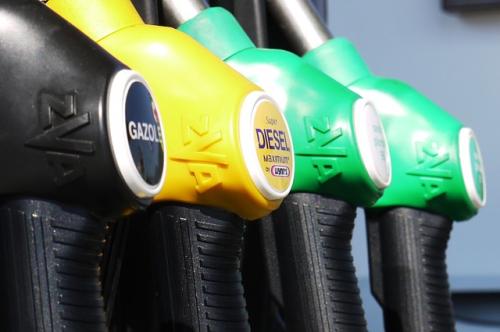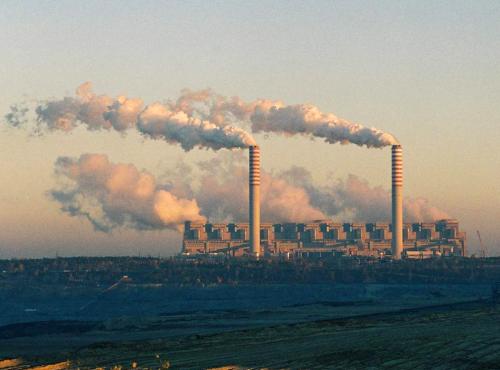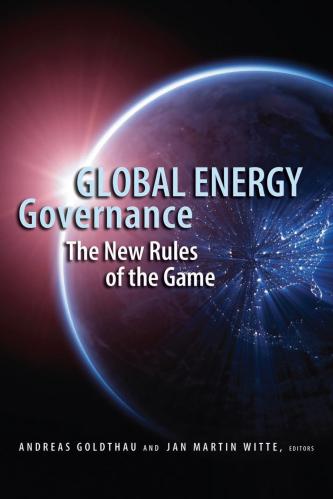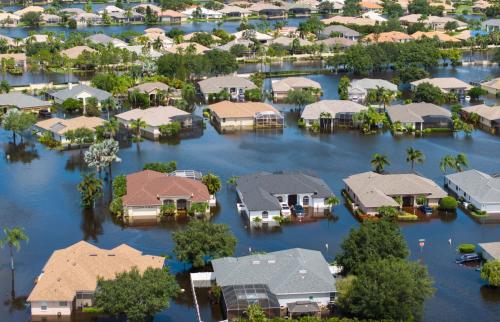Content from the Brookings Institution India Center is now archived. After seven years of an impactful partnership, as of September 11, 2020, Brookings India is now the Centre for Social and Economic Progress, an independent public policy institution based in India.
India hasn’t yet joined the global move towards clean energy. But for how long can it hold out?
A large part of my working life was spent with the Shell Group and I accumulated shares in the company. Last year, I decided to reduce my holdings of these shares. This was because I felt the business model of large, integrated, petroleum MNCs was under threat; public sentiment and the regulatory regime would constrain their licence to operate, and more generally, the oil era had entered a period of secular decline.
I may regret my decision but I know these were the reasons I reacted to the FM’s budget pronouncement that the government was going to create vertically integrated petroleum PSUs and the minister of petroleum’s subsequent explanation that scale and size were necessary prerequisites for international competitiveness with equivocation. I asked myself whether, given the speed with which technology is upending the conventional drivers of the petroleum sector, the government should be contemplating such a move at this juncture. Further, I have to admit to disappointment that the FM did not follow this announcement with a statement that the government would make these changes within the frame of a holistic and integrated approach to energy policy.
In my view, historians will with the benefit of hindsight, look back on 2016 as the year of inflexion for the oil industry. They will see it as the year the oil era began to slowly but inexorably hand over the energy baton to clean energy. They will not adduce any one particular event or decision but they will point to the following five broad trends.
One, the exponential advancement of technology leading to the development of a competitive and scalable substitute for the internal combustion engine and liquid fuels for transportation. Two, the growing public acceptance of electric vehicles (EVs) and the concept of “shared mobility” (“Uberisation”). They will cite as supportive evidence the fact that Tesla collected $12 billion in deposit money from customers interested in its latest model. Three, the structural shift in the oil market leading to a weakened OPEC, slowing global demand, a systemic supply overhang and relatively low and range-bound-oil prices.
Four, the weakening of the business models of the integrated Super Majors (Shell, Exxon, Total). This is because it was capital-intensive, high-risk and long gestation; the companies had lost control over oil and gas prices; they had no access to low-cost, “easy oil” as the bulk of such reserves were under the control and ownership of national petroleum companies; and, most significant, technology had reduced the entry barriers and enabled nimble, innovative and entrepreneurial companies to enter and compete across all segments of their integrated value chain. And finally, the deepening wellspring of public and regulatory antipathy towards the fossil fuel industry — so deep that even Trump could not smother public concern over global warming and environmental degradation .
These trends are not discernible in India, today. The demand for liquid fuels is surging, not declining. There is no evidence of public interest in EVs. The petroleum PSUs face limited, if any, competitive pressures and whilst the government has legislated relatively stringent environmental norms related to emissions and air pollution, the standards are observed more in the breach than otherwise. Notwithstanding, these trends are relevant and, in my view, they compel policymakers to ask whether their approach to energy policy is contemporaneous.
Our energy “strategy” has, hitherto, been built around the axis of securing oil supply security. Coal and renewables are priority sectors but given that we have abundant deposits of the former and are building the latter from a very low base, they do not present the strategic challenges that petroleum does. This is, of course, understandable and rational. We import over 80 per cent of our requirements and our economy hinges on the state of the international petroleum market, and in particular, on reliable, uninterrupted and affordable supplies of crude oil.
The question that now needs to be asked is whether this “oil supply side” approach to energy strategy is in sync with the existing and emergent global trends. Is it the appropriate policy in today’s world of surplus oil supplies, multiple oil and gas producers, “tradability” (oil can be bought on the high seas), Moore’s Law (technological advancement will sooner than later overcome the current roadblocks to the development of a non-fossil fuel energy system) and worsening air pollution and environmental degradation? Instead of expending effort and resources to create vertically integrated PSUs when technology has weakened the deterrent strength of size and scale or building caverns for storing strategic oil reserves, should they not instead be looking at a systemic overhaul of the institutional mechanisms for defining and implementing energy policy?
Queen Elizabeth asked an assemblage of eminent economists, including several Nobel Prize winners, why they did not foresee the global financial crisis of 2008. Their response was that whilst “everyone seemed to be doing their own job properly and on its own merit, there was no one who understood the risks to the system as a whole … there was no one who saw the whole picture and who appreciated that whilst individual risks may rightly be small, the collective impact of these risks could well trigger a systemic collapse”.
Today, we have an energy problem. Our demand is surging; the supplies are not keeping pace with the demand and the environment is under stress. But we have no one (other than the PM) responsible and accountable for seeing the whole picture. Thus whilst we manage one part of the energy problem (namely, petroleum) we leave unheeded those that arise from its interplay with the other sectors of the economy (for example, water, food, environment ). Our energy problem is now not so much about the capacity or security of supplies of any one energy source. It is not about the competitiveness, or otherwise, of our various PSUs. These need, of course, to be tackled. The major problem is the collective impact of all of these individual inadequacies. It is the risk of systemic collapse. That is why it is imperative that we now look at energy through an integrated policy prism and contemplate every decision within the bounds of such a frame.
This article first appeared in The Indian Express, on 06 February 2017. Like other products of the Brookings Institution India Center, this article is intended to contribute to discussion and stimulate debate on important issues. The views are of the author(s). Brookings India does not have any institutional views.
The Brookings Institution is committed to quality, independence, and impact.
We are supported by a diverse array of funders. In line with our values and policies, each Brookings publication represents the sole views of its author(s).









Commentary
Op-ed2016, the year of inflexion for the oil industry?
Indian Express
February 6, 2017